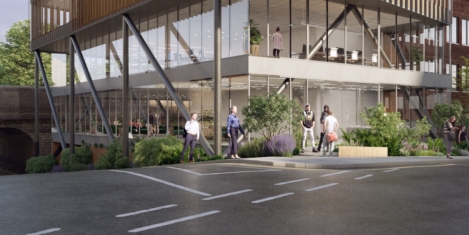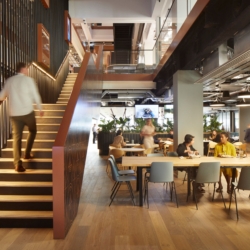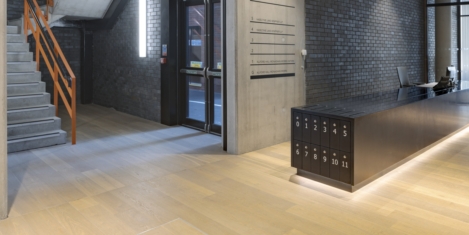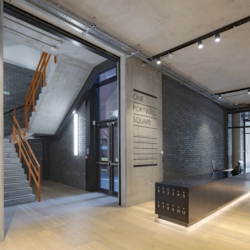To provide the best experiences, we use technologies like cookies to store and/or access device information. Consenting to these technologies will allow us to process data such as browsing behaviour or unique IDs on this site. Not consenting or withdrawing consent, may adversely affect certain features and functions.
The technical storage or access is strictly necessary for the legitimate purpose of enabling the use of a specific service explicitly requested by the subscriber or user, or for the sole purpose of carrying out the transmission of a communication over an electronic communications network.
The technical storage or access is necessary for the legitimate purpose of storing preferences that are not requested by the subscriber or user.
The technical storage or access that is used exclusively for statistical purposes.
The technical storage or access that is used exclusively for anonymous statistical purposes. Without a subpoena, voluntary compliance on the part of your Internet Service Provider, or additional records from a third party, information stored or retrieved for this purpose alone cannot usually be used to identify you.
The technical storage or access is required to create user profiles to send advertising, or to track the user on a website or across several websites for similar marketing purposes.
 Urban Infill Architects has secured planning consent for a 58,000 sq ft (GEA) redevelopment of New Devonshire House in Bromley, within the borough’s Business Improvement District. The redevelopment of New Devonshire House will provide a 10-storey office building designed to the latest BCO Grade A standards. The specifications include 78 cycle spaces, EV charging facilities and a communal sky deck level with break-out spaces, bar and sky garden. (more…)
Urban Infill Architects has secured planning consent for a 58,000 sq ft (GEA) redevelopment of New Devonshire House in Bromley, within the borough’s Business Improvement District. The redevelopment of New Devonshire House will provide a 10-storey office building designed to the latest BCO Grade A standards. The specifications include 78 cycle spaces, EV charging facilities and a communal sky deck level with break-out spaces, bar and sky garden. (more…)








 After soon-to-be 25 years of serving as Chief Executive for the British Council for Offices, Richard Kauntze will be stepping down in summer 2025. His successor will be appointed by the
After soon-to-be 25 years of serving as Chief Executive for the British Council for Offices, Richard Kauntze will be stepping down in summer 2025. His successor will be appointed by the 













 You don’t have to look far to find misinformation. Just a few weeks ago, amid the aftermath of the coup in Niger, online platforms were being
You don’t have to look far to find misinformation. Just a few weeks ago, amid the aftermath of the coup in Niger, online platforms were being 







July 19, 2024
Book review: Workspace Made Easy
by Mark Eltringham • Comment, Facilities management, Property, Workplace design